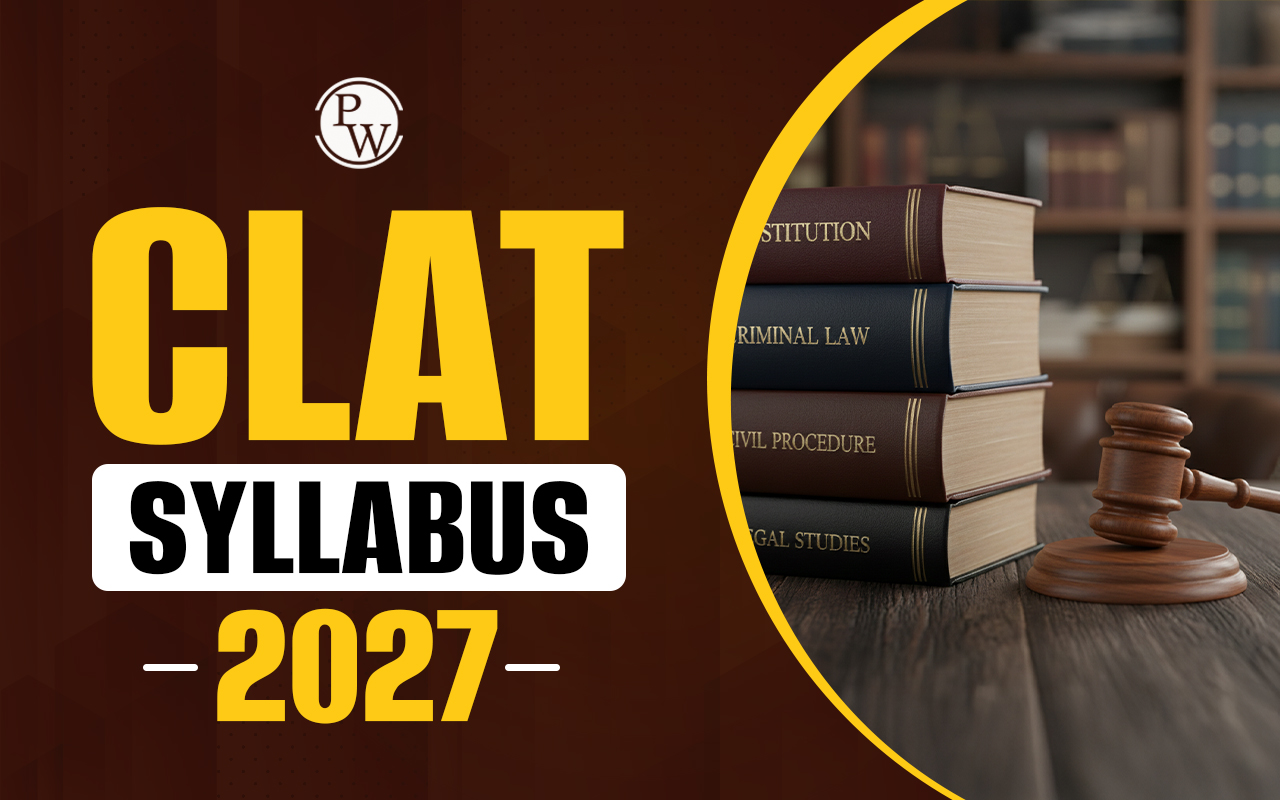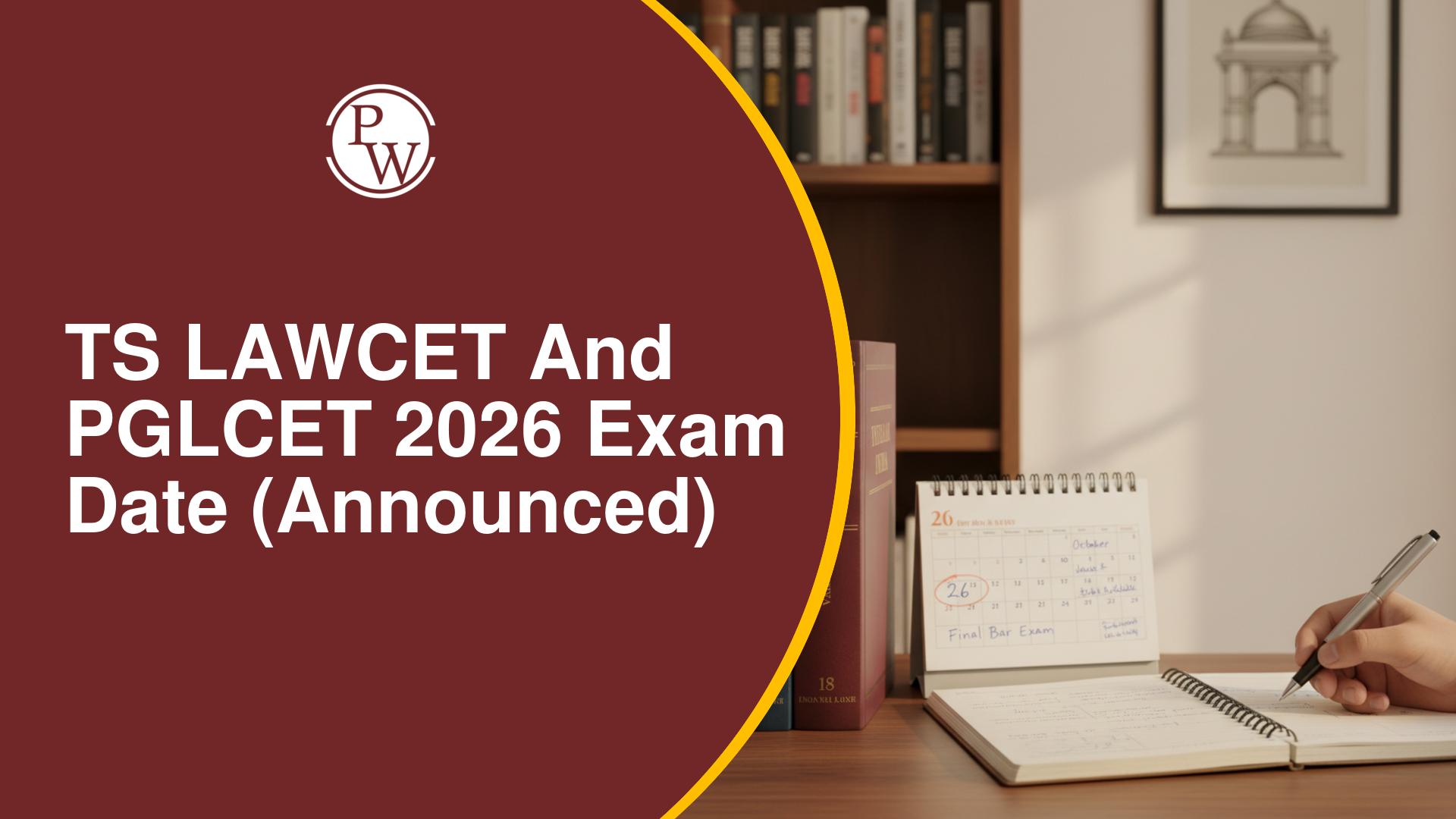
Arbitration Law Preparation Strategy and Study Plan for CLAT PG 2025: Arbitration Law in India deals with resolving disputes between two parties with the help of an arbitrator outside the court. It is a legal technique, in which the respective parties refer to another person, known as arbitrator, to resolve the dispute. His decision is final and the disputed parties have to comply with it. The Arbitration Law Preparation Strategy and Study Plan for CLAT PG 2025 will entail all the important topics regarding arbitration law in India.
Arbitration Law Preparation Strategy and Study Plan for CLAT PG 2025, Understanding Arbitration Law
Before planning out the strategies for the Arbitration Law Preparation Strategy and Study Plan for CLAT PG 2025, let's take a brief look at the concepts of Arbitration Law in India.Nature of Arbitration Law
Arbitration Law is considered a non-confrontational, and private form of dispute resolution. The disputed parties prefer arbitration over court trials. They consult an arbitrator to resolve their disputes outside the court, efficiently, and swiftly.Coverage of Arbitration Law
Arbitration Law includes the following important matters.- Arbitration Agreements: For the Arbitration Law Preparation Strategy and Study Plan for CLAT PG 2025, it is of utmost importance to understand its foundation and application. According to the Arbitration Agreements the disputed parties consent to resolve any forthcoming disputes through arbitration.
- Appointment and Duties of Arbitrator: The appointment, duties, and the extent of an arbitrator’s authority are defined under Arbitration Law. It is beneficial to know the nitty-gritty of an arbitrator during the preparation stage.
- Arbitral Proceedings: For the Arbitration Law Preparation Strategy and Study Plan for CLAT PG 2025, it is recommended to follow the proceeding of arbitration from start to end.
- Enforcement of Arbitral Awards: It includes how efficiently and effectively the decision or award is given by the arbitrator. As a future arbitration lawyer, you must understand how these awards become legally binding and enforceable.
Arbitration Law Preparation Strategy and Study Plan for CLAT PG 2025, Exam Pattern
CLAT PG 2025 examination paper consists of 120 questions of 1 mark each. The table provides the details regarding the exam pattern of the Arbitration Law Preparation Strategy and Study Plan for CLAT PG 2025.| Arbitration Law Preparation Strategy and Study Plan for CLAT PG 2025, Exam Pattern |
| Particulars | Details |
| Total Questions in CLAT Exam | 120 questions |
| Marks allotted | 1 mark for each question |
| Question Type | Objective |
| Important Topics | Constitutional Law, Jurisprudence, and other law subjects |
Arbitration Law Preparation Strategy and Study Plan for CLAT PG 2025, Important Topics
The syllabus for the Arbitration Law Preparation Strategy and Study Plan for CLAT PG 2025 consists of topics related to Constitutional Law, Jurisprudence, and other law subjects. The table provides the important topics asked in the exam.| Arbitration Law Preparation Strategy and Study Plan for CLAT PG 2025, Important Topics |
| Topics | Syllabus |
| Section 89 of CPC |
|
| Section 2 (1) |
|
| Conciliation and Arbitration Act 1966 |
|
| Other Arbitration Laws |
|
| Section 2 (1)b |
|
Arbitration Law Preparation Strategy
Candidates can follow the given pointers in their Arbitration Law Preparation Strategy.| Arbitration Law Preparation Strategy |
| Preparation Strategy | Explanation |
| Comprehend Principles and Concepts |
|
| Reference Books |
|
| Practice Questions and Understand the Pattern |
|
| Time-management |
|
CLAT PG 2025 Study Plan, Analysis, and Categorization
Candidates must segregate their months according to the topics and sections. This helps in the better execution of strategies for the exam.| CLAT PG 2025 Study Plan, Analysis, and Categorization |
| Study Plan | Explanation |
| Months 1-3: Grasping the basics of Arbitration Law |
|
| Months 4-6: Attempt Mocks and Self-Analyze |
|
| Months 7-8: Review and Practice |
|
| Months 10-12: Revision of Current Affairs |
|
Important Arbitration Law Judgments for CLAT PG 2025
There are some important arbitration law judgments for CLAT PF 2025. These are explained in detail.| Important Arbitration Law Judgments for CLAT PG 2025 |
| Arbitration Law Judgements | Issues | Judgements | Provisions Involved |
| Bharat Aluminum Co vs Kaiser Aluminum Technical Service (2012) | The main issue revolved around the jurisdiction of Indian Courts over arbitration proceedings and awards in agreements that chose foreign seat of arbitration. | According to Part I of the Arbitration and Conciliation Act, the Supreme Court stated that the provisions for the conduct of arbitration and challenging of awards, would only apply to arbitration that provide their seat in India. In effect, Indian courts would not have jurisdiction over foreign-seated arbitration. | The provisions involved were Section 2(2), 9, 34, and 37 of the Arbitration and Conciliation Act, 1996. |
| Amlegals vs Raahi Automation Solutions Pvt. LTD. (2021) | The parties could still refer their disputes to arbitration in the absence of the arbitration clause. | The Gujarat High Court gave reference to arbitration, despite the absence of an arbitration clause between the parties. The Court stated that the decision was based on the correspondence between the parties, which clearly showed their intent to arbitrate their disputes. | The important provision involved was Section 7 of the Arbitration and Conciliation Act, 1996, which defines the “Arbitration Agreement”. |
| M/s N.N. Global Mercantile Pvt. Ltd. vs M/s Indo Unique Flame Ltd. and others | It involved knowing whether a contract of guarantee would be classified as an agreement providing for arbitration. | According to the Supreme Court, a bank guarantee, independent of its underlying contract, cannot be considered as an agreement under Section 7 of the Arbitration and Conciliation Act. Thereby, any dispute arising out of such a guarantee cannot be categorized as arbitration. | The involved provision was an interpretation of Section 7 of the Arbitration and Conciliation Act, 1996, which defines the “Arbitration Agreement”. |
Arbitration Law Preparation Strategy and Study Plan for CLAT PG 2025 FAQs
What is the time limit for arbitration?
The time limit for arbitration under Section 34 of the Arbitration Act is 30 days from the prescribed period of 90 days by any court.
What is the validity of an arbitration agreement?
An arbitration agreement's validity must be examined under the Arbitration Act alone. The courts state that the arbitration agreement is separate from the contract.
What cases can not be decided by arbitration?
Some of the cases that cannot be decided by arbitration are criminal offenses, matrimonial disputes, trust disputes, insolvency petitions, and guardianship matters.
How is an arbitrator appointed?
The first party to appoint an arbitrator proposes a candidate to serve as President of the Tribunal. The other party then appoints an arbitrator and either agrees to the appointment of the arbitrator proposed for President or proposes another candidate.
What is the time limit for an arbitration appeal?
Under Section 34(3) of the Arbitration and Conciliation Act, 1996, the time limit for an arbitration appeal is 90 days.
Talk to a counsellorHave doubts? Our support team will be happy to assist you!

Check out these Related Articles
Free Learning Resources
PW Books
Notes (Class 10-12)
PW Study Materials
Notes (Class 6-9)
Ncert Solutions
Govt Exams
Class 6th to 12th Online Courses
Govt Job Exams Courses
UPSC Coaching
Defence Exam Coaching
Gate Exam Coaching
Other Exams
Know about Physics Wallah
Physics Wallah is an Indian edtech platform that provides accessible & comprehensive learning experiences to students from Class 6th to postgraduate level. We also provide extensive NCERT solutions, sample paper, NEET, JEE Mains, BITSAT previous year papers & more such resources to students. Physics Wallah also caters to over 3.5 million registered students and over 78 lakh+ Youtube subscribers with 4.8 rating on its app.
We Stand Out because
We provide students with intensive courses with India’s qualified & experienced faculties & mentors. PW strives to make the learning experience comprehensive and accessible for students of all sections of society. We believe in empowering every single student who couldn't dream of a good career in engineering and medical field earlier.
Our Key Focus Areas
Physics Wallah's main focus is to make the learning experience as economical as possible for all students. With our affordable courses like Lakshya, Udaan and Arjuna and many others, we have been able to provide a platform for lakhs of aspirants. From providing Chemistry, Maths, Physics formula to giving e-books of eminent authors like RD Sharma, RS Aggarwal and Lakhmir Singh, PW focuses on every single student's need for preparation.
What Makes Us Different
Physics Wallah strives to develop a comprehensive pedagogical structure for students, where they get a state-of-the-art learning experience with study material and resources. Apart from catering students preparing for JEE Mains and NEET, PW also provides study material for each state board like Uttar Pradesh, Bihar, and others
Copyright © 2025 Physicswallah Limited All rights reserved.









